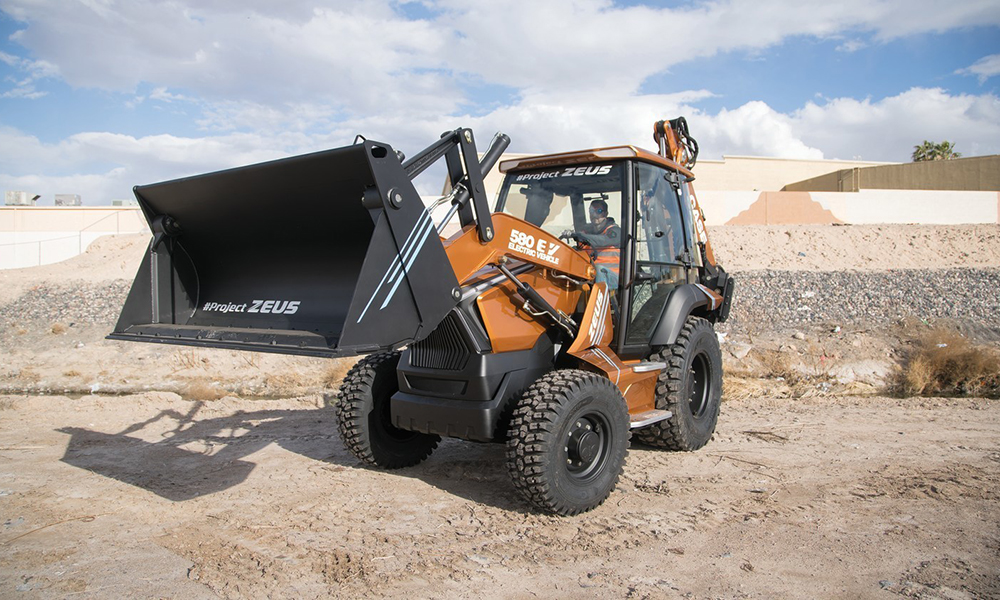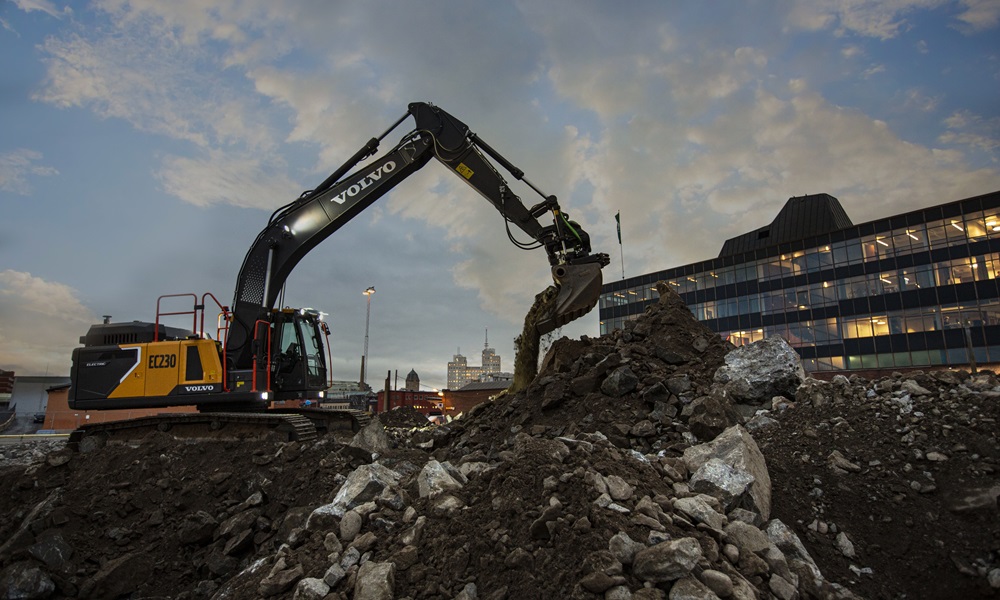Quiet, clean, and powerful, electric construction equipment is breaking ground in more ways than one. From buzzing city centers to remote job sites, these machines are proving that heavy-duty work doesn’t have to come with noise, fumes, or fuel bills. As the push for greener, smarter construction grows louder, electric equipment is no longer the future; it’s already charging up the job site.
Electric Construction Equipment: Overview
Electric construction equipment is the machinery powered by electric motors and batteries instead of traditional diesel or gas engines. This includes excavators, loaders, dump trucks, and other heavy-duty tools designed for construction tasks. These machines offer lower emissions, reduced noise, and improved energy efficiency, making them ideal for urban projects, indoor work, and environmentally conscious construction sites.
What’s Driving the Shift to Electric?
The global electric construction equipment market was valued at USD 14.72 billion in 2024 and is projected to grow at a CAGR of 22.88% from 2025 to 2034. This surge in demand is fueled by rapid urbanization, rising fuel prices, and stricter carbon emission regulations, driving the shift toward cleaner, more sustainable machinery.
Benefits of Electric Construction Equipment
Electric construction equipment is becoming popular in many industries, and it’s easy to see why. Here are the main benefits that are helping more people choose these machines:
Lower Emissions
Electric construction equipment operates without combustion engines, resulting in zero on-site emissions. This significantly reduces the environmental impact of construction activities, especially in urban or environmentally sensitive areas. It also helps companies meet tightening emission regulations and contribute to broader sustainability goals.
Reduced Noise Pollution
One of the standout features of electric machinery is how quiet it is compared to diesel-powered alternatives. This makes it ideal for work in noise-restricted areas such as residential neighborhoods, hospitals, and schools, while also creating a more comfortable and less stressful environment for workers on-site.
Lower Operating and Maintenance Costs
Electric machines have fewer moving parts, which means less wear and tear over time. With no need for oil changes, fuel refills, or complex engine maintenance, companies can save significantly on long-term operating and service costs. Additionally, electricity is often cheaper and more stable in price than diesel fuel.
Improved Efficiency and Performance
Electric motors provide instant torque, resulting in smooth, responsive operation that enhances precision and productivity. They’re also easier to control and start up instantly, reducing idle time and improving task efficiency — all of which contribute to faster project completion.
Safer Work Environments
With no exhaust fumes and minimal noise, electric equipment helps create healthier, safer job sites. This is especially important for indoor or enclosed projects, where diesel fumes and engine heat can pose serious health and safety risks.

Key Technologies Behind Electric Construction Equipment
Electric construction equipment relies on a mix of advanced technologies that work together to deliver clean, efficient, and powerful performance on the job site. Here are the key technologies driving this transformation:
Battery Technology: Modern batteries, especially lithium-ion types, store large amounts of energy to power electric machines for extended periods. Advances in battery capacity, charging speed, and lifespan are crucial for reliable and efficient operation.
Electric Motors: Electric motors convert electrical energy into mechanical power, providing instant torque and smooth, quiet operation that is highly efficient compared to combustion engines.
Power Electronics and Controllers: These components manage the flow of electricity between the battery and motor, ensuring precise control, efficient energy use, and protection against power surges or faults.
Charging Infrastructure: Charging stations and fast-charging technologies enable quick and convenient recharging of electric equipment, minimizing downtime on busy job sites.
Energy Recovery Systems: Some electric machines capture and reuse energy, such as during braking or lowering heavy loads, improving overall energy efficiency and extending battery life.
Electric Construction Equipment Trends
The electric construction equipment market is rapidly growing due to stricter environmental regulations, advancements in battery and IoT technologies, and rising fuel costs. Increasing focus on sustainability and cost-efficiency is encouraging more companies to adopt cleaner, quieter, and more efficient electric machines, shaping the future of construction worldwide.
In Conclusion
Electric construction equipment is reshaping the construction industry by offering a cleaner, quieter, and more efficient alternative to traditional machines. With growing environmental concerns, stricter regulations, and rising fuel costs, these electric-powered tools are quickly becoming the preferred choice for modern construction projects. Backed by advanced battery technologies and smart innovations, electric construction equipment is not just a glimpse of the future; it’s already transforming job sites worldwide, making construction safer, greener, and more productive.
